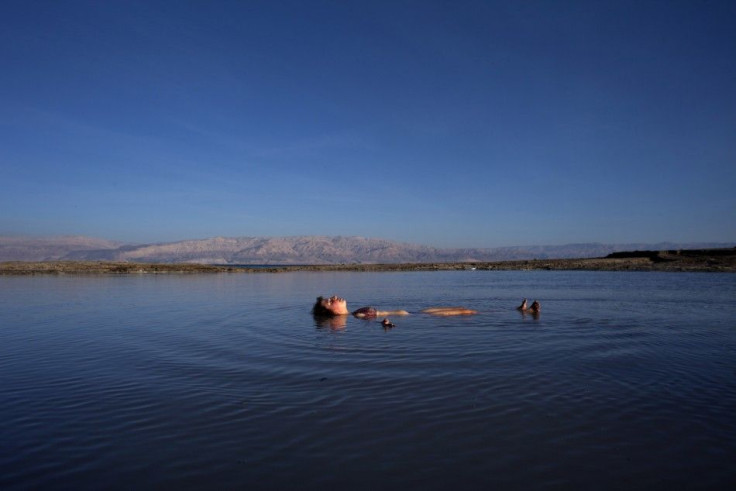Israel, Palestine and Jordan Sign Water Agreement To Save The Dead Sea

Israel, Jordan and Palestine are set to sign a breakthrough agreement with the aim of saving the rapidly disappearing Dead Sea via a 112-mile underground pipeline to the Red Sea.
The three governments signed off on the Red Sea-Dead Sea project on Monday afternoon in Washington, D.C., The Washington Post reports. Under the plan, a 112-mile long aqueduct will be constructed linking the Dead Sea and the Red Sea. About 200 million cubic meters of water will be pumped from the Red Sea each year, half of which will be delivered to the dwindling Dead Sea, while the other half will be desalinated in the Jordanian city of Aqaba and consumed. As another part of the deal, Israel will sell water from the Sea of Galilee and other sources to both Jordanian and Palestinian cities.
"It's like a swap," Alexander McPhail, lead water specialist at the World Bank's Water Practice, told the Jerusalem Post. "Israel needs water in the south because they want to settle that part of their country. Jordan needs more water in the north."
The pipeline linking the Red Sea and the Dead Sea will run underground through Jordan. Construction will take approximately five years and cost in the neighborhood of $650 million.
The Dead Sea, famous for its high salt content that allows visitors to float on the water, has been steadily shrinking for 40 years, and the sea has lost about 30 percent of its volume over the past 20 years alone. Much of the Dead Sea’s decline is due to the increasing use of its source, the River Jordan, by Israel, Syria and Jordan.
While officials in Israel, Jordan and Palestine have hailed the deal as historic, the Red Sea-Dead Sea project has attracted some serious criticism from environmentalists. The two bodies of water have different chemical compositions, and past experiments in mixing the two have led to a rapid growth of algae.
Environmentalists are also concerned that the plan won’t go far enough to halt the Dead Sea’s demise. The Red Sea-Dead Sea plan will slow the Dead Sea’s evaporation, but won’t actually replenish the body of water. In order to simply stabilize the Dead Sea at current levels, officials would need to pump in about 800 million cubic meters each year, but this plan only provides about 100 million cubic meters per year.
"This is a way of saving face rather than saving the Dead Sea," Gidon Bromberg of the Friends of the Earth Middle East told the Guardian.
© Copyright IBTimes 2025. All rights reserved.






















